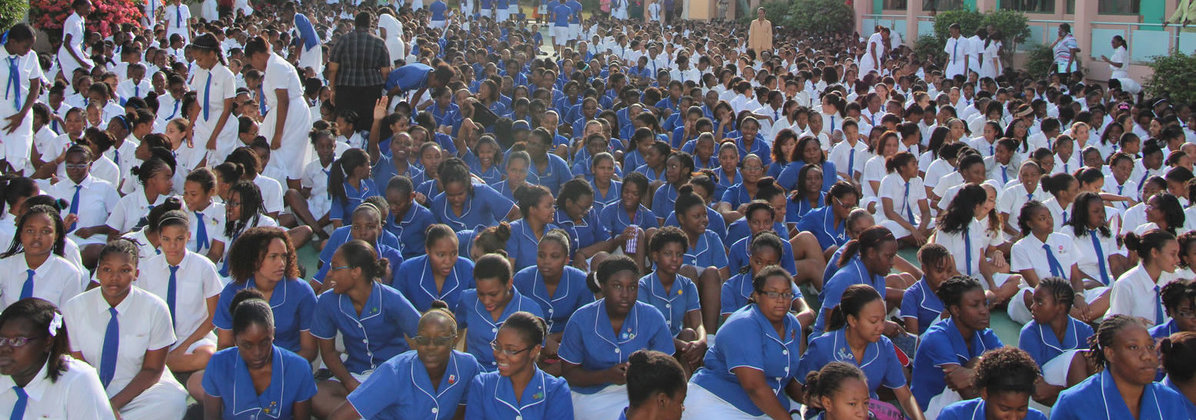
 The School Curriculum
The School Curriculum
Academic Curriculum: The formal academic curriculum follows the Pattern proven over the years in the Jamaican school system and approved by the Ministry of Education. Sound instruction in; Music; Drama; Physical Education; Food and Nutrition; Textile and Clothing; and lifestyle alternatives in Guidance classes supplement the introduction to the Principal disciplines.
In order to maintain high standards, Immaculate employs criterion testing. Therefore, the school undertakes no ranking of pupils. The passing grade is 60%.
Co-curriculum: This includes activities as well as student organizations. Tourism Action, Karate, P.A.W.S., Interact, Red Cross, Chess just to name a few. Campus Ministry helps the students to form the ethnic of volunteerism. A library, Computer Training Laboratories, Performing Arts Centre offer further enrichment. The latter Music Department, which besides the core curriculum, offers classes in several instruments up to the professional level of the Associated Board of the Royal School of Music. It co-ordinates the activities of Glee Club, Orchestra, Concert Band, and Steel Band. The Drama Department collaborates with the Music Department in some school activities. Facilities for athletics include playing fields, three tennis courts a volleyball/netball court and a swimming pool.
 Requirements for Graduation
Requirements for Graduation
Graduation status is granted to students exiting eleven grade, who satisfy Academic requirements. Those requirements relate to conduct and general deportment; attitudes toward work; punctuality; and regularity of attendance.
 Post-Secondary Programme (Equivalent of A.P / Honours Courses)
Post-Secondary Programme (Equivalent of A.P / Honours Courses)
The two-year post-secondary programme of studies comprises a compulsory core and electives. The compulsory core subjects are the single unit CAPE subjects of Communication Studies and Caribbean Studies as well as the GCE Advanced Level Paper. Communication Studies is a socio-linguistics programme that also includes modules on oral communication and research skills.
Caribbean Studies is a Social Studies course that examines regional Geography, History, Sociology, and development issues such as small state economy and the impact of slavery on gender relations and health practices. Students choose a minimum of three other advanced level disciplines. They must complete 6 units in at least three other disciplines, but may complete studies in as many as four other discipline since regional three-year university matriculation requires that two disciplines be represented by both unit 1 and unit 2 studies. Each unit is a year long syllabus.

